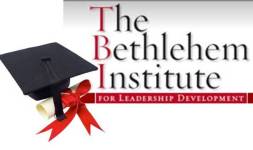Last night, John Piper presented the vision and educational philosophy for our church’s new college and seminary. Bethlehem College and Seminary wll remain tethered to the original ideals which have grown strong and proved frutiful over 10 years as The Bethlehem Institute (of Bethlehem Baptist Church).
Piper had some interesting things to say contrasting education/persuasion and indoctrination. I hope to post on that when the audio of his message becomes available. Right now, however, I want to focus on God’s sovereignty.
Piper reiterated somewhat his recent blog post regarding being thankful for whatever government God sends our way. And later he quoted from our church’s elder affirmation of faith when he was declaring that this college and seminary holds unwaveringly to God’s sovereignty. That quote, which I’ve shared before, really captures the heart of a Biblical and God-honoring view of sovereignty. In light of the recent election, and the continuing economic woes, it would do good for us to ponder and rejoice over these words.
We believe that God, from all eternity, in order to display the full extent of His glory for the eternal and ever-increasing enjoyment of all who love Him, did, by the most wise and holy counsel of His will, freely and unchangeably ordain and foreknow whatever comes to pass.
We believe that God upholds and governs all things — from galaxies to subatomic particles, from the forces of nature to the movements of nations, and from the public plans of politicians to the secret acts of solitary persons — all in accord with His eternal, all-wise purposes to glorify Himself, yet in such a way that He never sins, nor ever condemns a person unjustly; but that His ordaining and governing all things is compatible with the moral accountability of all persons created in His image.
This section is taken from Article 3 sections 1 and 2 of The Bethlehem Elder Affirmation of Faith. The section goes on to assert God’s sovereignty in salvation. I’d encourage you to read the entire affirmation of Faith. I blog through the entire document in a series of blog posts, which you’re welcome to peruse as well.

 I subscribe to
I subscribe to  Calvinism seems to spread by fives: five points, five solas, and I bet we could think of other groups of five. Five Reformation countries (Germany, France, Switzerland, The Netherlands, England). Five key Reformers (Luther, Calvin, Zwingli, Huss, Wycliffe). Okay, I know Huss and Wycliffe came earlier….
Calvinism seems to spread by fives: five points, five solas, and I bet we could think of other groups of five. Five Reformation countries (Germany, France, Switzerland, The Netherlands, England). Five key Reformers (Luther, Calvin, Zwingli, Huss, Wycliffe). Okay, I know Huss and Wycliffe came earlier….